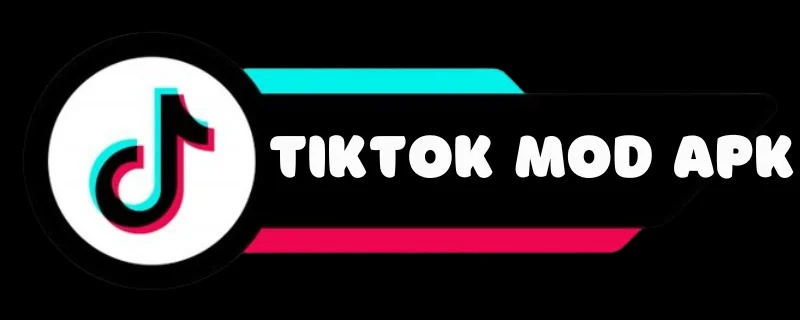📅 TikTok’s Future in Limbo: Trump Extends US Sale Deadline to September
Introduction
In a fresh executive order, former President Donald Trump has extended the deadline for TikTok’s US sale to September 17, 2025. This move gives the app’s Chinese parent company, ByteDance, additional time to divest its US operations to an American buyer in order to avoid a nationwide ban.
This is now the third extension, following earlier deadlines in January and April. With each extension lasting 75 to 90 days, the Biden administration is now under increasing pressure to show that a resolution is nearing completion.
1. Background: The Law Behind the Ban
In 2024, the US Congress passed a bipartisan bill titled the “Protecting Americans from Foreign Adversary Controlled Applications Act” (PAFACA). This law required TikTok to either be sold to an American entity or face a nationwide ban due to national security concerns.
Under this legislation, ByteDance was given 270 days to complete the sale, with a one-time 90-day extension allowed if there was “significant progress.” The US Supreme Court upheld the law’s constitutionality, dismissing concerns about free speech violations under the First Amendment.
2. Trump’s Evolving Stance on TikTok
Trump originally took a tough stance against TikTok in 2020, labeling it a national security threat. His administration issued multiple executive orders seeking to ban or force its sale. However, in recent years, his tone has softened, especially as TikTok’s influence among young American voters has grown.
In the 2024 election cycle, Trump even used TikTok strategically in his campaign, recognizing its cultural impact and youth appeal.
3. Legal Concerns Over Repeated Extensions
The law clearly allows only one 90-day extension, making Trump’s third extension legally questionable. Some legal analysts argue that continuing to delay enforcement may violate the original legislative framework.
However, the Trump team maintains that the extension is covered under executive authority, especially as negotiations for a sale are actively ongoing. So far, no legal challenges have succeeded in halting the extensions.
4. American Companies Interested in TikTok
Several US-based companies have expressed interest in acquiring TikTok’s US operations, including:
- Oracle
- Microsoft
- Amazon
- Private equity firms like Blackstone
- Even OnlyFans’ founder has publicly shown interest.
Negotiations have largely stalled due to the complexity of TikTok’s algorithm and data infrastructure, both of which are tightly regulated under Chinese law.
5. China’s Position: ByteDance Cannot Sell Freely
The Chinese government has reiterated that ByteDance cannot sell TikTok without state approval. Beijing considers TikTok’s algorithm a “national technology asset” and is unlikely to allow its transfer to an American buyer without stringent conditions.
Adding to the tension, the US recently imposed up to 54% tariffs on various Chinese goods, making negotiations even more difficult.
6. Reactions from US Lawmakers
In the US, reactions are mixed:
- Democrats, such as Senator Mark Warner, argue that the repeated delays may undermine national security and disrespect the legislative process.
- Republicans, including Senator Eric Schmitt and Representative John Moolenaar, are also voicing concerns but seem more willing to give the Trump administration time to close a deal.
Overall, Congress remains divided on whether continued extensions are justified or simply a stalling tactic.
7. American Users and Businesses Welcome the Delay
TikTok has over 170 million users in the US and supports more than 7.5 million small businesses. Many users and entrepreneurs have expressed relief over the deadline extension, fearing the economic damage a full ban could cause.
Digital marketers, influencers, and e-commerce brands have especially welcomed the breathing room.
8. The Road Ahead: Next 90 Days Crucial
Over the next three months, the following key developments are expected:
- ByteDance must reach a deal with a US buyer that satisfies both American data protection laws and algorithm ownership regulations.
- The Chinese government must approve any sale, which could take time.
- Legal experts expect further scrutiny and possible challenges to any proposed agreement, especially if data control remains ambiguous.
9. Long-Term Outlook
If a deal is successfully completed:
- TikTok could become a fully American-owned platform, with clear guidelines on data usage and algorithm security.
- The platform could continue operating in the US, but under much stricter regulatory oversight.
If the deal fails:
- TikTok may face a full ban in the US.
- Legal and political backlash could escalate, especially if TikTok tries to operate through legal loopholes.
- This could set a dangerous precedent for how the US handles foreign-owned tech companies.
Summary Table
| Aspect | Details |
|---|---|
| New Deadline | September 17, 2025 |
| Legal Basis | PAFACA + Supreme Court validation |
| Key Buyers | Oracle, Microsoft, Amazon, Blackstone |
| China’s Stance | No sale without government approval |
| US Political Views | Divided: Democrats oppose delays, Republicans more flexible |
| Public Reaction | Positive from users and businesses |
| Next Steps | Sale negotiation, Chinese approval, legal clarity |
Conclusion
Trump’s latest extension keeps TikTok’s US future uncertain. While this gives ByteDance more time to find a buyer, it also raises questions about legal overreach, data privacy, and political motivation. The next 90 days will be crucial—not just for TikTok’s survival, but for the future of tech regulation in America.
If a deal is finalized, TikTok may remain a dominant platform in the US. If not, a new digital cold war may erupt—one where technology, sovereignty, and security collide.







